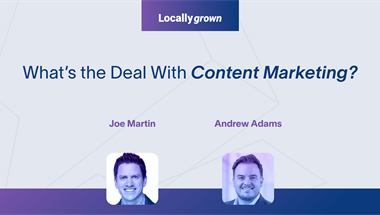Download the full 2022 Consumer Marketing + Media Report here.
Getting a follow-up email after shopping online or seeing ads on Facebook or Instagram can at times feel a bit jarring. Sometimes, they click so well or meet a very specific need, only to leave you a bit unsettled about how personal they are. Still, digital channels like email and social media end up being important sources of information whenever you’re looking into something or some service you need.
So, how do other people feel about digital media and getting personalized ads?
To find out which traditional and digital media channels consumers prefer when researching and purchasing new products or services, as well as their data privacy/online personalization preferences, Scorpion conducted a research study with 1,000 American consumers aged 18-65 in Q2 of 2022.
The Personalization and Privacy Paradox
70% of respondents surveyed said they would like advertising to be personalized based on browsing history, interests and hobbies, purchase history, or places visited, but 31% of those who favored personalization said that digital ads seem to know too many personal details. This is nearly 3x higher than those who said ads were not personalized enough.
This disconnect points to a paradox where consumers desire ad personalization but seem reluctant to give up information that fuels personalized marketing. In a complex digital world where everyday users might not fully be aware of how their personal details are being gathered or used, businesses should note that being hyper-personal can backfire.
Ads that are overly specific can feel like an invasion of privacy, especially in an era when big tech companies are viewed with suspicion and distrust. Even though small businesses may not be colluding with tech giants, targeted digital ads may lead consumers to think so.
The Demographic Shifts in Accepting Personalization
When it comes to generational differences in ad personalization preferences, younger consumers seem to accept that personalized ads are an extension of their digital experiences. 91% of Gen Z and 81% of Millennials said they wanted personalized ads, while only 53% of Baby Boomers said the same.
Higher-income earners were also more likely to prefer ad personalization. 79% of households with $150,000 or more in annual income said they wanted personalized ads compared to 68% of households who earned less than $100,000. Higher earners may equate time with money and perceive that digital ad personalization helps save both when they’re shopping.
Also of note, 89% of smart device shoppers preferred personalized ads compared to 64% of respondents who don’t use smart devices to shop. More tech-savvy smart device users may see the benefit of personalization in their technologically integrated everyday lives and, similar to younger consumers, also see personalized ads as a natural part of their digital world.
The Link Between Personalized Ads and Digital Presence
Consumers who want personalized digital marketing are 2-4x more likely to view a company’s digital presence as highly important than those who don’t want personalized ads.
28% of respondents who want personalized ads strongly agree that a company’s website is often indicative of their broader customer experience, while just 16% who did NOT want personalized ads said the same.
Similarly, 25% of respondents who want personalized ads strongly agree that an organization’s social media feed is as important as its website, while just 8% who did NOT want personalized ads said the same.
Businesses that want to be able to reach targeted customers online need to ensure their digital presence is polished (e.g., maintaining websites, updating social media profiles) if they want to resonate with an audience who values their digital engagement with a company.
Differences in Media Consumption
When asked where respondents were consuming media on a weekly basis, the study found distinct differences in where businesses can reach audiences across the various generations.
Cord-cutting continues to be a trend among Gen Z and Millennials as they only spend 4.2 and 5.7 hours a week on cable and satellite TV. This is in stark contrast to Baby Boomers, who spend 3.5x more hours on cable or satellite at 14.9 hours a week.
Where are younger generations spending their time instead?
Millennials lead all generations in streaming media (e.g., Netflix, Hulu) with 7.9 hours a week, while Gen Z holds the top spot for YouTube at 6.6 hours a week. On the other end of the spectrum, Baby Boomers only stream media for 5.8 hours a week and spend a mere 3.3 hours on YouTube per week.
How Generations Approach Product and Service Discovery
When it comes to discovering new products and services online, Gen Z and Millennials lead the charge.
Gen Z (43%) and Millennials (35%) are 4-5x more likely than Baby Boomers (9%) to turn to influencers. Similarly, Gen Z (33%) and Millennials (27%) share a love for neighborhood apps (e.g., Facebook Groups, NextDoor) as they are 2x likelier to use them compared to Baby Boomers (16%).
Baby Boomers tend to prefer more traditional channels of discovery. 38% of Baby Boomers referred to direct mail for new products and services compared to just 17% of Millennials and 10% of Gen Z.
Final Thoughts
Businesses need to balance being relevant to their target audiences with building meaningful customer trust and relationships. That may mean toning down targeting to more general groups while providing valuable content outside of advertising to their customers.
In terms of advertising, businesses that have a solid understanding of their ideal customer demographics will be better positioned to reach and resonate with target audiences where they spend the most time while saving time and precious marketing dollars.




